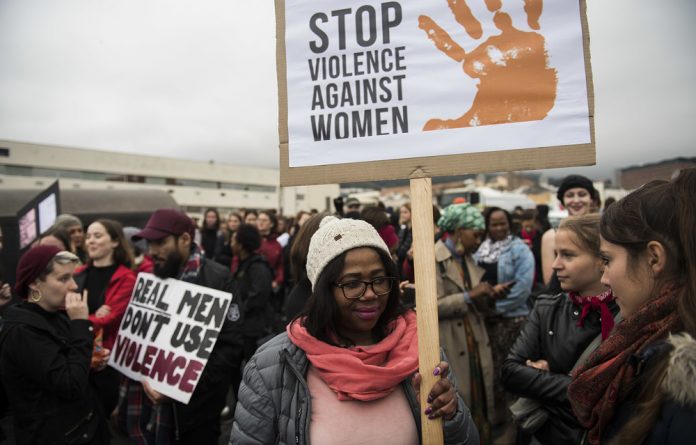South African women still face tremendous challenges in their daily lives, from personal safety to access to education and work opportunities and appropriate healthcare. Women are still more likely than men to be unemployed. According to Statistics South Africa, 31 percent of men are unemployed compared to 34 percent of women. Black women are by far the most vulnerable, with an unemployment rate of 38 percent.
These are structural issues, backed up by some troubling attitudes. Only 56 percent of men believe earning an income is the best way for women to be truly independent. And nearly two-thirds of South Africans said that women earning more than their partners would almost certainly be an issue.
Statistics such as these are infuriating for what they mean to the personal, lived experience of individual women, who are constantly barred from opportunities and realising their full potential and ambition. On a macro level, they are also deeply troubling for South African society, which is impoverished by the lack of diversity, imagination and creativity women could bring to the table if they were supported and encouraged.
The magnitude of these issues can feel overwhelming and disempowering. So huge are the problems, so entrenched the attitudes, that it can be difficult to know where to begin, or how to even start to respond.
Breaking the silence
Despite how deeply we connect to others, most of us still hold certain topics taboo. During lockdown, parents of young children battle to speak up about the burden of childcare and what this means for job performance. Very few women feel comfortable enough to talk to other women – even fellow team members grappling with similar experiences – about issues that impact them every day and that have the potential to derail job performance.
And that’s why it’s important that we begin to share what we’re going through. What feels overwhelming on an individual level can turn into solidarity, understanding, and sometimes even advice and solutions when shared with another. We already know this, hence the saying that a problem shared is a problem halved.
Listening can go a long way
Sometimes the person you confide in will know what to do. Often, they won’t – and that’s okay. Listening itself provides the speaker with the reassurance of having been seen and heard, reducing stress and building empathy.
Listening to others’ stories, and seeing how they act, can help us to feel safe enough to share our own. Women are speaking up about their experiences of sexual assault and harassment, with the #MeToo movement underlining how ubiquitous these abuses are, and how they are enabled by a culture of impunity for powerful men. Tennis champion Serena Williams’ traumatic birth experience has highlighted healthcare bias that puts black women’s lives at risk. Naomi Osaka has stepped away from the French Open and Wimbledon rather than face post-match press conferences which aggravate her anxiety and depression.
Meanwhile, Simone Biles, one of the most decorated gymnasts of all time, blew the whistle on sexual abuser Larry Nassar. She is now charting a new path of resilience by refusing to risk her personal safety by competing when she does not feel safe to do so. Closer to home, track star Caster Semenya repeatedly endures the public humiliation of having her gender dissected, and yet keeps returning to set new records.
These women have made bold decisions to share their stories and find success on their own terms. They show us that we don’t always need to follow the rules someone else made. And they paint a picture of how we can thrive despite trauma.
Big change starts small
Change starts with having open, vulnerable conversations with people you trust, finding a collective support that develops organically and sharing a deeper understanding around the issues. Those conversations may start small, but eventually snowball and give rise to better relationships and deeper bonds, both in the workplace and outside. And in doing so, we create a supportive environment, where women feel empowered to realise their ambitions.
In the wise words of Facebook chief operating officer Sheryl Sandberg: “We need women at all levels, including the top, to change the dynamic, reshape the conversation, to make sure women’s voices are heard and heeded, not overlooked and ignored.”



